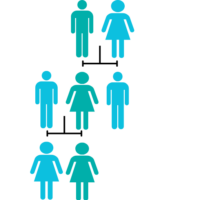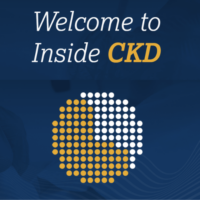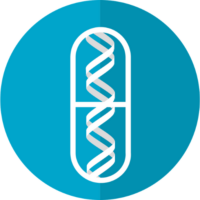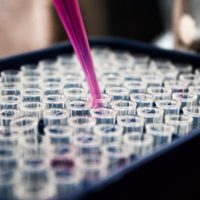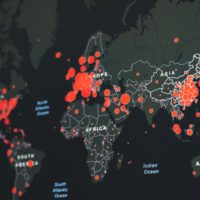-
Demonstrating the value of cascade screening using microsimulation modelling: A pathway to faster diagnosis and improved patient outcomes for genetic diseases
Earlier diagnosis can make all the difference for individuals with genetic diseases. Delayed diagnosis hinders timely disease management and treatment access, meaning that progression to late-stage disease can occur more rapidly, likely leading to a significant increase in the health and economic burden of these conditions for patients, their families, and healthcare systems. Screening programs aim to identify individuals with genetic conditions earlier, with cascade screening in particular providing one way to help transform outcomes for patients.
-
The Inside CKD online hub: Turning research into policy action
As part of AstraZeneca’s Accelerate Change Together (ACT) on CKD programme to drive chronic kidney disease (CKD) change across the healthcare ecosystem, the Inside CKD project stream projected the clinical and economic burden of CKD from 2022 to 2027 across 31 countries and regions. The results have recently been compiled into a comprehensive portal on the Inside CKD website.
-
Genomics and precision medicine: The new frontier for microsimulation
“Genomics requires a form of modelling that can capture individual genetic differences and responses to therapy – a purpose to which microsimulation is eminently suited.”
This quote, from a seminal review paper by Professors Deborah Schofield and Rupendra Shrestha of Macquarie University, pioneers in applying microsimulation techniques for modelling the costs and benefits of genomic medicine, formed the basis for a fascinating recent discussion with the HealthLumen team, on the role of microsimulation modelling techniques in precision medicine.
-
Early intervention for preventing NCDs: generating evidence for the health and economic impact, using microsimulation modelling
Non-communicable diseases (NCDs), including heart disease, stroke, cancer, diabetes and chronic lung disease, are the leading causes of death worldwide. A recent report by FP Analytics sets out the scale of the problem and the health and economic burden of NCDs. These conditions share a common set of risk factors of which the main ones […]
-
Reducing Failure Rates of Phase 3 Clinical Trials: how microsimulation modelling can assist
Of the three main phases of clinical trials, by far the most expensive part of the process is the Phase 3 trial, typically requiring from several hundred to several thousand participants and costing up to $20 million on average. Furthermore, the process is fraught with risks with up to 70% of Phase 2 trials and […]
-
Intern Series (4)
We’re pleased to share the latest in our series of posts from our interns. Daniel Ohrenstein has just completed an extended 5-month stay with us working on some exciting new techniques for multiple risk factor modelling. Daniel Ohrenstein I recently completed an MSc in Machine Learning and Data Science at UCL, having graduated with a […]
-
2020 Summer Intern Series (3)
As we move into the autumn, we’re pleased to share the last in our series of posts from some of our first summer interns. Annie Estlin I recently graduated from the University of Cambridge with an MPhil in Epidemiology. It’s been incredibly exciting to work for HealthLumen this summer and apply my learning in the […]
-
2020 Summer Intern Series (2)
In the next installment of our summer intern series, we hear about the “day in the life” of one of our interns. Yousef El-Tawil Hello! I am a medical student by background at Kings College London and I am currently completing my intercalated MSc in Global Health Policy at the London School of Economics. I […]
-
2020 Summer Intern Series (1)
Like everyone else, the HealthLumen team has been working hard these last few months to continue our work and navigate the new realities of a COVID-19 world. We have written about the role of modelling in post-COVID-19 decision making and have been working with various partners on the links between NCDs and COVID-19 outcomes. Despite […]
-
Simulating the future: The role of computer modelling in a post-COVID-19 world
In collaboration with our charity partner The Royal Society for Public Health. Our COO and Co-Founder Laura Webber has set out the role of computer modelling in decision making in the post-COVID-19 world. Our first guest blog for RSPH. For further resources on COVID-19 please visit the RSPH COVID-19 hub. This resource is being updated […]
